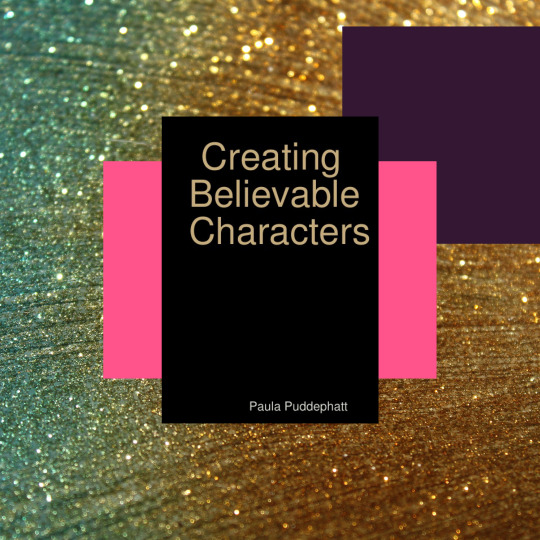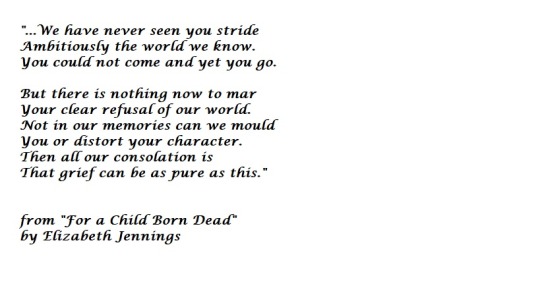#writetip
Text
Common character archetypes in literature
Character archetypes are universal patterns of behavior, personality traits, and motivations that are commonly found in literature, mythology, and other forms of storytelling. They are often used as a shorthand to help readers quickly understand and relate to a character's role and purpose in the story.
Here are some common character archetypes:
The Hero: The hero is a brave and noble character who goes on a quest or journey to achieve a goal or overcome a challenge. Examples of heroes include Odysseus in Homer's "The Odyssey" and Frodo in J.R.R. Tolkien's "The Lord of the Rings."
The Villain: The villain is an evil character who opposes the hero and tries to prevent them from achieving their goal. Examples of villains include Darth Vader in "Star Wars" and Iago in Shakespeare's "Othello."
The Mentor: The mentor is a knowledgeable and seasoned figure who directs and encourages the protagonist throughout their adventure. Examples of mentors include Gandalf in "The Lord of the Rings" and Obi-Wan Kenobi in "Star Wars."
The Trickster: The trickster is a mischievous character who uses their wit and cunning to achieve their goals. Examples of tricksters include Loki in Norse mythology and Hermes in Greek mythology.
The Damsel in Distress: The damsel in distress is a female character who requires saving from a hero. Examples of damsels in distress include Princess Peach in the Mario video game series and Sleeping Beauty in the fairy tale of the same name.
The Wise Old Man/ Woman: The wise old man or woman is commonly portrayed as having immense wisdom and expertise, and often acts as a mentor or guide to the protagonist. Examples of wise old men and women include Dumbledore in the Harry Potter series and the Oracle in Greek mythology. Such archetypes have been frequently employed in literature over time to communicate universal themes and concepts about human existence.
The Innocent: The innocent is a pure and uncorrupted character who often serves as a symbol of hope and goodness. Examples of innocents include Dorothy in "The Wizard of Oz" and Boo Radley in "To Kill a Mockingbird."
The Outcast: The outcast is a character who is rejected by society and often feels a sense of alienation or isolation. Examples of outcasts include Frankenstein's monster in Mary Shelley's "Frankenstein" and Hester Prynne in Nathaniel Hawthorne's "The Scarlet Letter."
The Temptress: The temptress is a seductive female character who lures men into danger or temptation. Examples of temptresses include Circe in Greek mythology and the character of Delilah in the Bible.
The Scapegoat: The scapegoat is a character who is blamed for the problems or issues of others. Examples of scapegoats include Tom Robinson in "To Kill a Mockingbird" and Piggy in "Lord of the Flies."
The Rebel: The rebel is a character who challenges authority and often advocates for change. Examples of rebels include Winston Smith in George Orwell's "1984" and Holden Caulfield in J.D. Salinger's "The Catcher in the Rye."
The Everyman: The everyman is a relatable character who represents the average person and often serves as the protagonist in a story. Examples of everymen include Bilbo Baggins in "The Hobbit" and Winston Smith in "1984."
The Wise Fool: The wise fool is often portrayed as someone who appears to be simple-minded, foolish, or even insane, but who possesses insights and wisdom that are not immediately apparent to others. Examples of the wise fools include the protagonist in "Diary of a Madman" and Yorick in "Tristram Shandy".
The preceding list outlines the typical character archetypes found in literature. Can you determine which archetype best fits your characters?
If you want to read more about The Wise Fool archetype, click here: The Wise Fool - Who is that?

#creative writing#writing#writer things#writerscommunity#writeblr#own character#on writing#writersociety#writing community#writers#writetip#writing tips
711 notes
·
View notes
Text
Fantasy Religions: Rethinking Hell & Prayer
I'm creating a fantasy hellscape and death realms so I had some thoughts about that for worldbuilding:
What happens if your hellscape isn't a place of punishment? What alternatives are there to "punishment" as a concept, and what does that say about your fantasy religious system(s) and so on?
like: I'm using a system where it's about how you die. It literally doesn't matter what you were like as a person, if you die in a specific way, you go to the corresponding realm of the dead and you're at the mercy of whoever's realm that is. If they are pretty nice and the place is the one everyone wants to get into, you may need to convince the gatekeeper to let you in when you get there, but that's doable. Also people might then try and manipulate their deaths to fulfil the criteria for getting where they want to go.
It's also fun because then people can go to hellscapes (various) even if they don't deserve it, and what happens then? Can they escape? Can they journey through and find a way out? Can everyone?
Do/how do prayers function in this system?
Are people praying to a deity that can hear them?
How do they try and get said deity's attention and why is that meant to work?
If the deity/deities are very annoyed by the prayers of the living and have deliberately made it difficult for prayers to reach them, what then?
Or, is it more that the living require someone to open a channel of communication so they can be heard, and this also helps the souls of the dead in some way?
Can prayers benefit the dead? How and when?
Can the dead pray for themselves/for the living, so it operates in reverse?
I'm going with the system where you can't pray for yourself, that's an alien concept, because the person who prays becomes a conduit or a channel for somebody else. They have to try and make their mind go blank with repetition of words given to them by the wind - which carries the voices of the restless dead, who died without anyone to pray for them and open a road for them to travel on - and in that moment of blankness, the soul they are praying for can cross over from life to their appropriate death realm. If you don't have someone to pray for you like this, your soul joins the wind forever, and you are just a whisper bringing warnings and bad news to people, and telling them what to pray for everyone else.
This is based on the old folklore that you can hear the voices of the dead on the wind, I think it pops up in Flemish folklore in some form, but also I've heard it elsewhere. I just adapted it.
From this, you can build outwards and work out fantasy religions and philosophy and ideology. Just keep asking questions, layer on layer, and see where this goes, as your answers are the scaffolding and the shape will grow from those first decisions you make.
Like, ok, what's the terminology for these concepts and processes (do they even have words like 'hell' and 'prayer')? How do these terms show up in the language and casual conversation - idioms like "he hasn't got a prayer" or "not a hope in Hell" wouldn't work if prayer isn't something that's synonymous with 'chance this will work out', because in this world, the idea of asking for something in prayer doesn't exist.
So in my world, for example, 'he hasn't got a prayer' wouldn't mean 'he doesn't stand a chance', it means, 'he's going to join the restless dead because he's got no one to pray for him'. That might be used for a very unpopular person: he's so bad, he hasn't got a prayer. (He's such a bad person that he hasn't got anyone who will pray for him when he dies). Or, a very lonely, isolated person: I think that's so sad - living alone without a prayer.
Similarly, if there's no Hell, then all the idioms that use "Hell" as a place of punishment no longer apply, and if there's no equivalent, then "not a hope in Hell" would have to be retired and swapped out for something else that does make sense in this world instead.
Conversely, "living on a prayer" like Bon Jovi would mean "selling my ability to pray for you", like a service that people offer so you don't join the wind, or go to the wrong death realm, or that you'll get passed the gatekeeper if a prayer operates like a ticket to enter, or whatever this might mean in your world.
If this is something that can happen, how are these people seen - as necessary to the community, or as unscrupulous opportunists? Bit of both? There's a whole interesting series of characters you could develop from just that concept, which might draw parallels with the sin-eater figure. And what happens if someone who doesn't deserve a lovely afterlife pays someone to pray for them so that they get entry into a lovely death realm?
There's a lot to play with when you just take one idea away, and try to swap it for something else. In this case: Hell isn't a place of punishment, so what is it then, and does it exist at all, and if not, what is there instead and how does it work?
That's a good place to start with building fantasy religions. I've already done a few other posts on my thoughts there!
#fantasy world#fantasy worldbuilding#writers on tumblr#writeblr#fantasy#fantasy writing#fantasy religion#dark fantasy#high fantasy#modern fantasy#medieval fantasy#urban fantasy#world building#worldbuilding#thought dump#writetip#writing tips#writing prompt#writing process
79 notes
·
View notes
Text
Crafting Spells with Incantations: A Primer for Fantasy Writers
1. The Roots of Language & Power: Think about languages. Why is Latin so captivating to many? Elvish words from Tolkien's Middle Earth gives us a sense of nostalgia. Incantations borrow from the weight and mystery of forgotten or invented tongues to create allure in our fictional works. Authors might want to consider phonetic aesthetics and rhyming words. Cadence can distinguish between magic that stays with the reader or falls short.
2. The Binding Element - Intention: Fancy words can enchant, but intention carries power. Consider the caster's emotions, desires, and the cost of wielding the magic. A simple spell to light a candle may be whispered, while summoning a storm might require a shout. Emotional resonance adds depth to your magical system. Depth can make it more relatable and memorable.
3. The Harmony of Gesture: Incantations are often paired with gestures. The flow between word and motion can amplify potency. Perhaps the caster must trace a key through the air to open a door. Visual clues help readers see spell casting in their minds.
4. The Complexity of Consequence: Let spells have consequences. Mispronouncing an incantation could come with disastrous or unexpected outcomes. Spells can backfire if cast with doubt. Create checks and balances that challenge your characters.
5. Soundscapes of Sorcery: When performed correctly, what sounds accompany the spell? What sounds come when the magic is incorrect? Spells that summon forth storms release echoing booms in the distance. Offer readers a multi-sensory experience where they can 'hear' the magic too
-Indigo
If you’d like more check out my article on unique and classical sources of magic.
#WritersOnTumblr#Writeblr#WritingCommunity#WIP#WritersLife#WritingPrompt#FlashFiction#NaNoWriMo#CharacterDevelopment#PlotTwist#WorldBuilding#FanFiction#AmWriting#AmEditing#WriteTip#WritingInspiration#ShortStory#CreativeWriting#WritingChallenge#StoryPrompt#Bookblr#PoetryCommunity#SpilledInk#MicroPoetry#Prose#WritersBlock#AuthorLife#ScriptWriting#GenreFiction
97 notes
·
View notes
Photo

(via Distorted Perceptions: My Novel)
#distorted perceptions#paula puddephatt#writeblr#writetip#readers#booklr#new adult#general fiction#addiction fic#literary fiction
21 notes
·
View notes
Photo

(via Writing About Substance Abuse in Your Fiction)
8 notes
·
View notes
Photo

(via Writing Modern Historical Fiction)
7 notes
·
View notes
Photo

(via Creating Believable Characters)
3 notes
·
View notes
Photo

(via Siblings in Fiction)
3 notes
·
View notes
Text

🎠
#writetip#generalfiction#readers#writeblr#histfic#the80s#fiction#generalfic#writing#reading#books#bookblr#books and reading#book tumblr#paula puddephatt#read in 2024
3 notes
·
View notes
Photo

(via Child Death in Fiction: Dealing With Tragedy in Your Writing)
6 notes
·
View notes
Photo

(via Writing Modern Historical Fiction)
3 notes
·
View notes
Photo

(via Describing Locations in Realistic Fiction: 5 Tips)
7 notes
·
View notes
Text
Worldbuilding Thoughts 3
Ok so one thing I don't see very much in medieval fantasy settings with a royalty system is the issue of the monarch travelling with a retinue. If you're writing one like GoT and you're into the whole idea of the monarch needing to travel (trust me, if it's medieval, they really do need to do a circuit of their kingdom, even if administration and judicial system has been centralised. If you don't, you can't monitor the nobles on the periphery, and you ... really need to do that).
If this is something you've considered, ignore, if not, I was just thinking about the medieval England situation for the earlier kings (William I to John).
Do you know how many the king travels with?? How many guards how many horsemen, lads to take care of the horses, courtesans, scribes, courtiers who need to stay close, accountants, etc? Now have a look at the size of the castles. They're not that big. You have to scale the castle to the landscape (and really seriously consider how long it takes to build a big one). You've got space for a prestigious guest, and then like. 20 extras. At an absolute push, in some cases. Ok, bigger ones, yeah ram 100 in.
The king's got 200 men. He doesn't scale down to stay at a castle or fortified manor that fits 50max and already has 30 occupants. He just rocks up. People do not want him to, but he does anyway.
What used to happen in Medieval England was - there wasn't ever enough space. Literally none. There was also no system, it was King gets the best guest room, everyone who needs to be immediately close to him crashes on the floor, and if you're not fast enough and a bit further down the pecking order, you're marching into someone's house and saying "I'm staying here tonight" and sleeping downstairs with the goats. There are sources of courtiers bitterly complaining they had to sleep in barns and some "camping" (sleeping rough in the rain) in the forest because there was NO SPACE FOR THEM in the castle/fortified manor or in the surrounding villages because they came late due to their admin duties holding them up. And they don't have a tent. They have to literally sleep outside with their cloaks over them. Did they die of exposure? I mean, sometimes. Did they catch chills and die of those? Sure, yeah. Did it really piss them off? Every time.
(Peasant perspective: So many young* angry men with swords with untreated PTSD from all the war/general life trauma, chips on their shoulders and complexes about being younger sons (the spare not the heir) and desperate to prove themselves in a chivalric context of fighting/shagging prowess but they've been give a lot of admin duties to do, drinking a lot of alcohol every single day. Since being on the road they have had to cut down on the alcohol which hasn't improved their mood. And they're all coming to your village. And you can't feed or house them all.)
Then the king decides to leave.
It takes a good few hours to let everyone know because **nobody knows where anyone is**. You have to prep the supply wagons and the horses. And the king stands up after breakfast and says "I want to leave NOW"
Then he changes his mind.
Now you're leaving tomorrow afternoon.
If you're trying to picture this, with a lot of highly strung horses in an enclosed space being yelled at and dragged into position to cut down time, and people running to comb the villages and the woods for stragglers and leave messages for others coming through later, it's chaos. Absolute chaos.
Now imagine being put in charge of it.
So many plot points to play with there.
*For reference, because I've been watching Robin Hood adaptations lately, Richard 1 "the Lionheart" is depicted as an older man in all the films but he was only 42 when he died (b. 1157, d. 1199). The Third Crusade was 1189, when he was 32. He's played by Sean bloody Connery in Robin Hood: Prince of Thieves, when he actually was around the same age Richard Armitage was when he played Guy of Gisborne in the BBC Robin Hood series. (For context). Prince John was 33 in 1199 when he became king and only 23 when Richard went off to war. We're often largely talking about an intensely homosocial group of men in their 20s and 30s. ladsladslads
In the 14thC, one of the Earls of the March led his first campaign in the Hundred Years' War at the age of 17. ladsladsladsla-
83 notes
·
View notes
Text

SIBLING FIC
9 notes
·
View notes
Photo

(via Writing About Substance Abuse in Your Fiction)
7 notes
·
View notes
